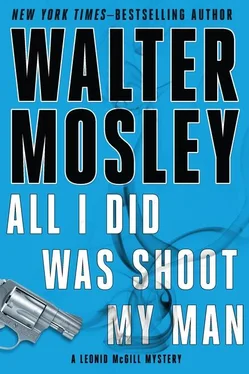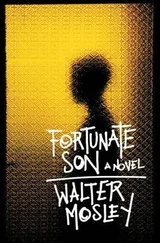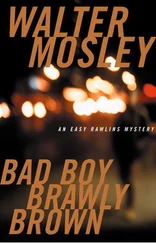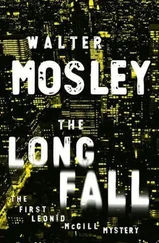“Yeah.”
“Lemon a problem?”
The question seemed deep and broad like a mile-wide river that separated whole cultures. Was Lemon a problem? Probably. Probably he was. But I made a living, my whole life, on problems. Time on this earth for me was navigating the Problem River, making it from side to side, connecting contradictory concepts, struggling against the wind and current, the sun, and creatures, both great and small, but all deadly.
“LT?” Luke said.
“No, Luke. Lemon’s just fine, just doin’ what he does and tryin’ not to.”
“You take care of yourself now, LT.”
I disconnected the call without answering. I knew Luke wouldn’t hold it against me.
I intended to leave right away but instead I slumped in the chair, leaning backward. My eyes closed of their own accord and something akin to sleep ensued... I was thinking about Stumpy’s horrible corpse tied to that chair, besieged by maggots and roaches. Stumpy wasn’t a brave man. Under threat he’d fold with four of a kind in his hand. But the professional gambler was cunning and aware of the lay of the land with just a glance. Whoever it was that tortured him planned to kill him anyway, Stumpy knew that. He held out because whatever it was they wanted was also the only thing keeping him alive.
And there were only two possibilities; either the men who brutalized Stumpy were looking for the money or they knew where it was and they were looking to snip loose threads. There were only two such threads that I knew of: Gert Longman, dead six years now, and me.
This realization didn’t frighten me. I wasn’t worried about becoming a feast for insects in a laundry room somewhere. Understanding that I might be the subject of concern for murderers made me wonder why — not why they were after me but why, or how, I had gotten myself into such a situation.
Why would I ever plant false evidence on a poor woman already going to jail? A woman distraught over her faithless lover and the child in her womb? I tried to remember the state of mind that allowed me to take those actions. I knew the man that did these things intimately, had all of his memories. I could enumerate each and every sin he ever committed. But try as I might I could not bring up the feeling inside that allowed me to do the things I’d done.
Of course men were after me. Of course they wanted to destroy me. Of course they did.
I opened my eyes, understanding that I had been in a kind of existential slumber, an intellectual doze. Rather than being in a true state of restful unconsciousness, I could only be described as a philosophical recluse. My spirit had challenged the pretexts and justifications, allowing the truth of my flawed existence to come to the surface.
I felt completely rested and free.
People wanted to kill me. They had valid reasons even if they were not aware of what those reasons were. I wanted to survive because I couldn’t make up for my sins if these shadowy men achieved their purpose.
On the street, walking south, I considered Zella. She was a textbook case of a woman who suffered a severe case of bad luck. From the man she chose to be her lover to the woman she thought of as a friend, she had chosen badly. Having a loaded gun where she could grab it was a bad idea, but the worst thing about Zella’s life was completely out of her control — me. I was bad luck, pure undiluted calamity; for Katrina, Aura, Zella Grisham, and one hundred and seven other poor souls who had been blindsided by my machinations. I was Typhoid Mary’s meaner older brother, the ire of Moses on the unsuspecting peasants of the Nile Valley. I planted false evidence, sicced the dogs on unsuspecting citizens simply because I didn’t like them and was being paid to trap someone, anyone, that would fit the bill. I was a minor, mischievous deity loosed upon naïve humanity for the entertainment of the gods.
Back in the hippie days we would have been seen as Karmic siblings, Zella and I, working out the misdeeds of previous lives. But in 2011 the metaphysical world, as well as the physical universe, was comprised almost completely by corporate plans, prayers, and plagues.
I was so distracted by these useless esoteric reflections that I came up on the White Horse Tavern unawares. It was after one and there were quite a few people at the tables and bar — regulars, tourists, and the odd drop-in.
At a table in the corner, in the front room by the window, a group of nine people were being addressed by a young man wearing black jeans, a dark green sports jacket, and a T-shirt that read GINSBERG FOR RAJAH.
“... among many of the recognized and lauded lights of the New York poetry scene the allure of Dylan Thomas has faded,” the clean-shaven raven-haired young white man proclaimed. “They criticize everything from his depth of linguistic complexity to the obvious melodrama of his most well-known works. But what these poetry pontiffs fail to understand is that Thomas was a people’s poet, a man that connected song and meter and the concerns of every human being living their lives and suffering the consequences. His work, in its every repetition, fights for the survival and the lifeblood of a form that most so-called great poets have moved beyond the reach of the common man...”
Not only the tableful of tourists with their pints and bitters were listening to the lecture but people all over the bar were enthralled. The bartender, a red-faced man, was smiling at the effect.
The young man continued, and I found myself taken by his ideas and obvious passion.
Someone tapped my shoulder and I turned to see Sweet Lemon Charles. At the bus station his skin looked olive under the fluorescent lights but in the window, bathed in natural, if murky, sunlight, he was more a wallet brown.
“She’s sumpin’ else, huh?” he said.
With a twitch of his head he indicated a small white girl with short brown hair, standing behind the lecturer. She was slight, but still with a figure under the maroon dress. She wasn’t what you’d call pretty but she had a look that would make a man pass up a dozen comelier girls just to see her smile.
“That’s Morgan?” I asked.
“Yep. My girl.”
“She could be your daughter, man.”
“Every young girl needs a daddy until she has kids of her own.”
“That’s pretty good, Lemon. You read it somewhere?”
“Auntie Goodwoman,” he said, shaking his head.
“Shhh!” a woman seated at the bar near us hissed. She wasn’t part of the paying group, but still... “Let’s go outside, LT,” Lemon suggested.
On Hudson in the afternoon there was lots of foot traffic. People walked dogs and toted laptop computers in dull-colored rectangular valises. There was every race, gender, subgender, and age, hoofing it around us.
Lemon lit up a cigarette and I stood close to share the secondhand smoke.
“So this is your new gig?” I asked. It was an obvious question but safer than the ones lurking at the back of my mind.
“Oh yeah,” the lifetime thief opined. “I live, breathe, and fuck poetry twenty-four hours a day. Morgan had me go out to Wyoming to this writers’ retreat with her. They gave us a cabin out on the prairie. You know one night I saw a coyote not six feet from our front door. A coyote and me!”
“You got any scams?” I asked. I had to.
“They go through my mind,” he said with unusual candor. “You know how people get all trustin’ when they’re excited. They want you to help them lose their money, or at least that’s how it seem.
“One night this woman and her husband wanted me to score for them. They would’a paid two hundred dollars for what I could get for fifty. But instead I went back to Morgan’s place and wrote a prose poem of what my auntie would say after I had did what would’a been so easy for me to do.
Читать дальше












